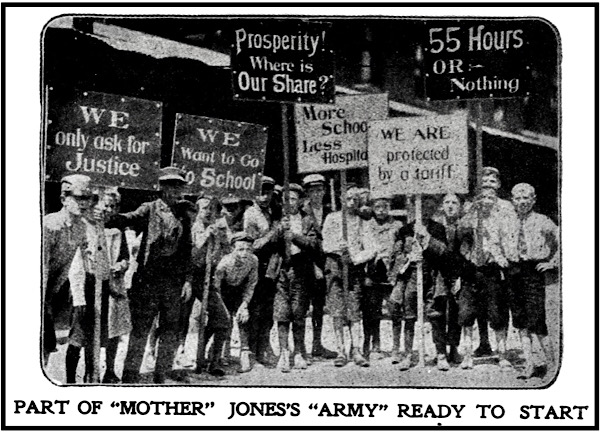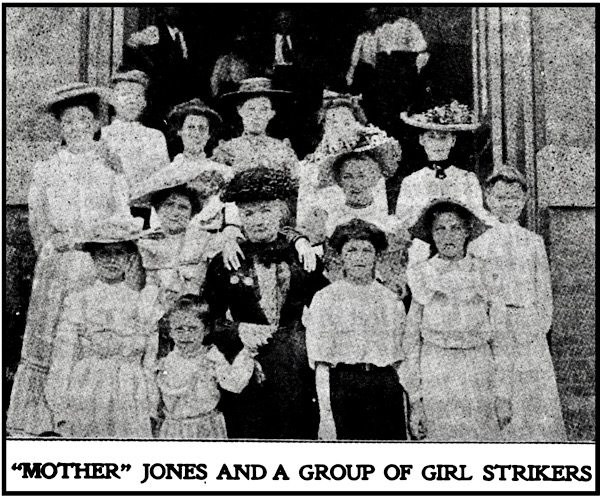Debs Denounces Critics
From the N. Y. Call
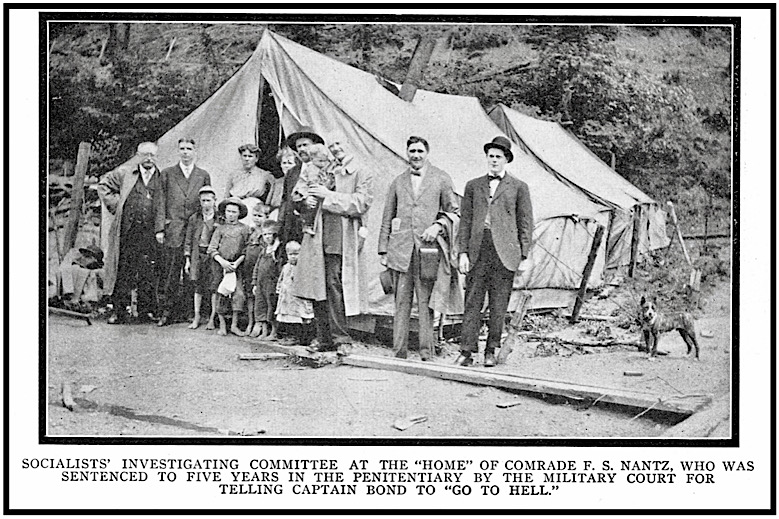
Terre Haute, Ind., June 27.-The National Committee of the Socialist party in its regular session in May appointed a committee of three to investigate conditions in West Virginia. That committee, of which the writer was a member, was instructed to work in harmony with the United Mine Workers.
Having completed its investigation the committee has submitted its report, and it is in reference to this report, which has been widely published, that I now have something to say in answer to those who have assailed it.
First of all I want to say that I shall make no defense of the report. It does not need defense. It will answer for itself. But I do want to show the true animus of its critics and assailants, which they have been careful not to reveal in what they have written against it.
Two or three Socialist papers have bitterly condemned the report. Not one of them published it. Each of them suppressed it. They evidently did not want their readers to see it. It was sufficient for them to condemn it.
These Socialist papers have in this instance adopted the method of the capitalist papers with which I have had so much experience. A thousand times a speech of mine has been denounced by a capitalist paper while not a line of the speech was permitted to appear. That is precisely what these Socialist papers have done with our report, and if this is fair to themselves and their readers, I am willing to let it pass.
When our committee was appointed, more than sixty of our comrades were in the bullpen, martial law was in full force, two Socialist papers had been suppressed and there was a terrible state of affairs generally. Within four days after our committee arrived upon the ground every prisoner was released, martial law was practically declared off, the suppressed papers were given to understand that they could resume at their pleasure, and the governor of the state gave his unqualified assurance that free speech, free assemblage and the right to organize should prevail and that every other constitutional right should be respected so far as lay in his power.
[Here Debs neglects to say that when the two papers were “suppressed” equipment was destroyed, for which the papers were never compensated.]
It may be that our committee had nothing to do with bringing about these changes. As to this I have nothing to say. I simply state the facts.
Soon after our arrival it became evident that a certain element was hostile to the United Mine Workers and determined to thwart the efforts of that organization to organize the miners. This is the real source of opposition to our action and to our report.
Let me say frankly here that I do not hide behind the instruction of the National Committee that we work in harmony with the United Mine Workers. I would have done this under existing circumstances without instruction.
In our report to the party, we made a true transcript of the facts as we found them. We told the truth as we saw it.
And yet we have been charged by the element in question with having whitewashed Governor Hatfield and betrayed the party.
The truth is that we opposed Governor Hatfield where he was wrong and upheld him where he was right. But Hatfield is not the reason, but only the excuse in this instance. The intense prejudice prevailing against him has been taken advantage of to discredit our report as a means of striking a blow at the United Mine Workers.
[Here Debs ignores the hardships of Hatfield’s bullpen, where his comrades were held for several months, and the court martial they faced with possible death sentences hanging over their heads. All of which may have been a source of the “prejudice prevailing against him.”]
Had we, instead of doing plain justice to Governor Hatfield, as to everyone else, painted him black as a fiend, our report would have provoked the same bitter attack from the same source unless we had denounced the officials of the United Mine Workers, without exception, as crooks and grafters and in conspiracy to keep the miners in slavish subjection.
That would have satisfied those who are now so violently assailing us. Nothing less would.
For this reason and no other we are being vilified by sabotagers and anti-political actionists, and by those who are for just enough political action to mask their anarchism.
I am an industrial unionist, but not an industrial bummereyite, and those who are among the miners of West Virginia magnifying every petty complaint against the United Mine Workers and arousing suspicion against every one connected with it, are the real enemies of industrial unionism and of the working class.
[“Bummereyite” is an insult directed against the I. W. W., who are, at this time, facing prosecutions and long prison sentences in Ipswich, Paterson, and Little Falls, not to mention fellow workers who have lost their lives in those struggles.]
I am quite well aware that there are weak and crooked officials in the United Mine Workers, but to charge that they are all traitors without exception is outrageously false and slanderous.
The whole trouble is that some Chicago I. W. W.-ites, in spirit at least, are seeking to disrupt and drive out the United Mine Workers to make room for the I. W. W. and its program of sabotage and “strike at the ballot box with an ax.”
[This charge is simply not true. The I. W W. is engaged in its own struggles at this time and in no way attempted to destroy the U. M. W. A., only offering support to those oppressed under the rule of Hatfield’s pro-operator military dictatorship. Rather than listen to local leaders, on the ground in West Virginia, Debs makes a boogeyman of I. W. W., much like the capitalist press.]
Continue reading “Hellraisers Journal: From the International Socialist Review: Debs Denounces Critics of the S. P. A. Committee’s Report on the Investigation into West Virginia Situation” →
 —————
—————
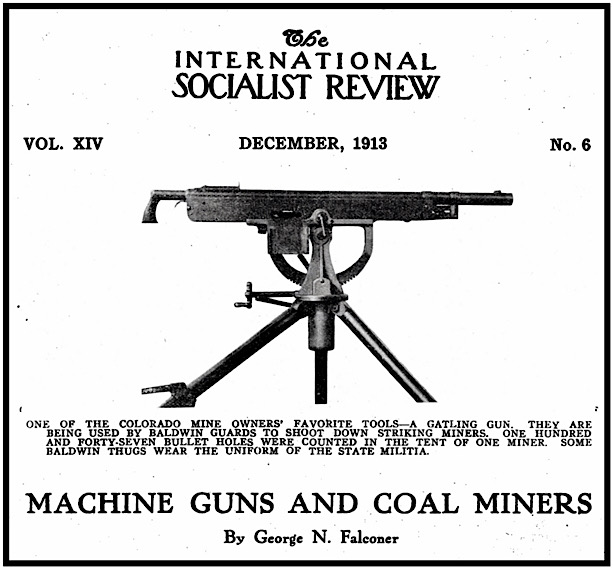
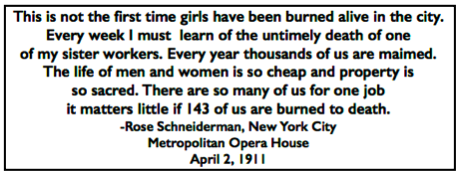 —————
—————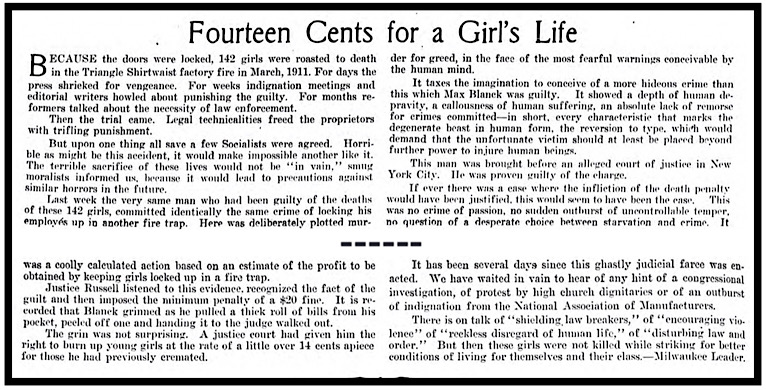
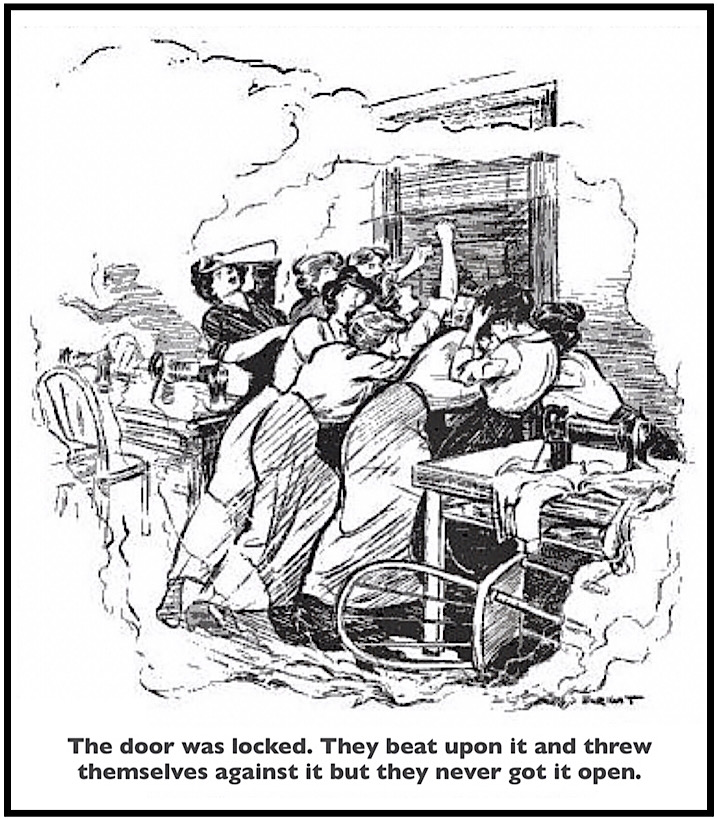
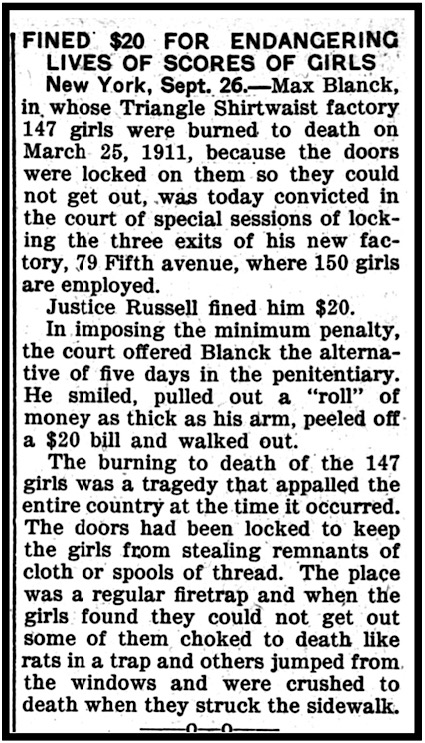
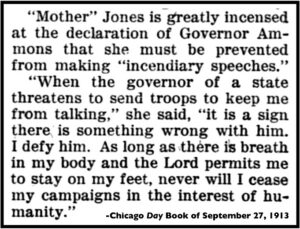 —————
—————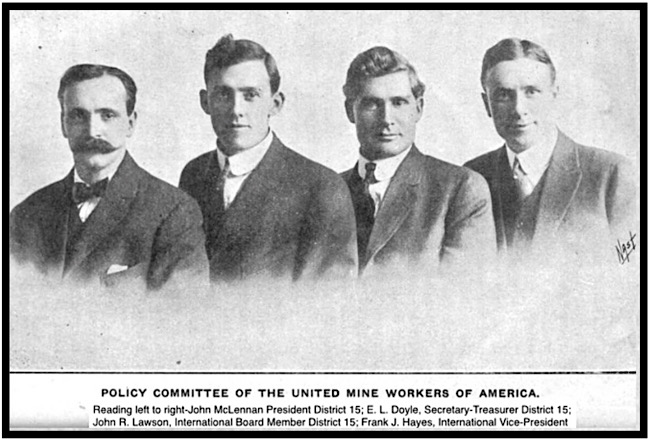
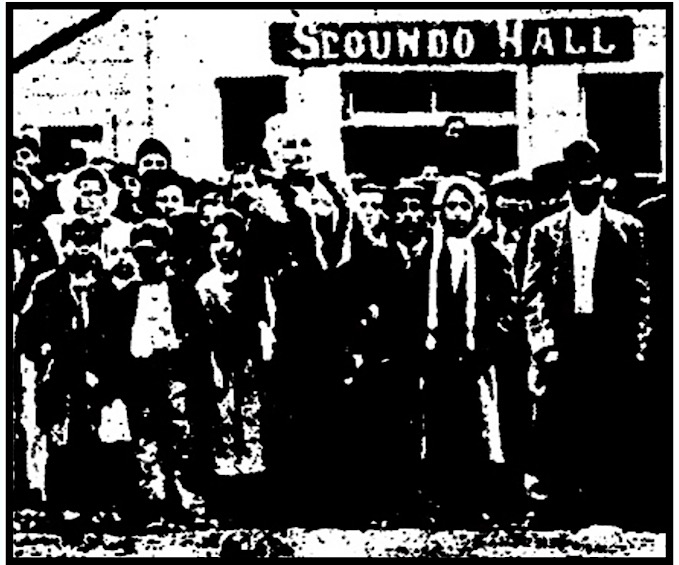 ——
——
 —————
—————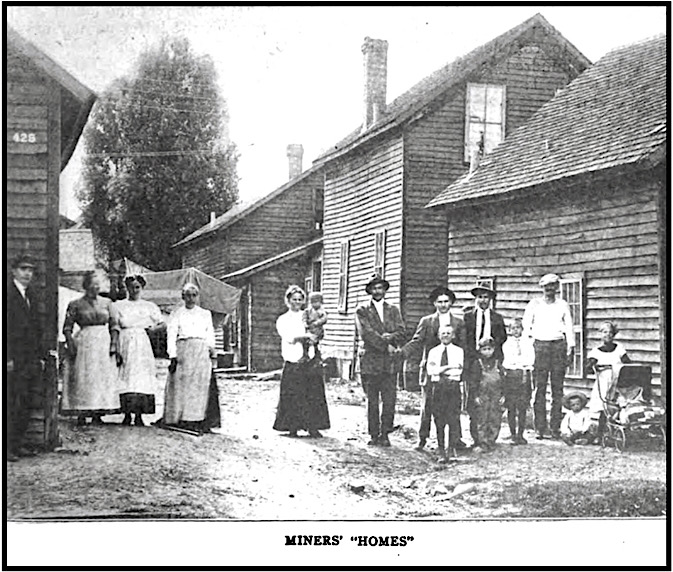
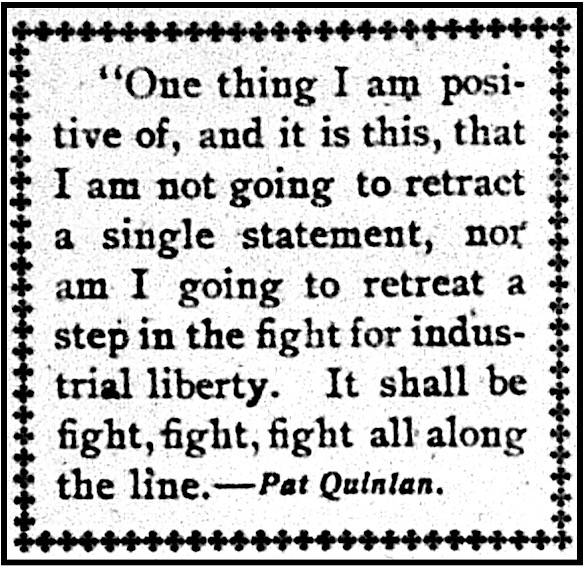
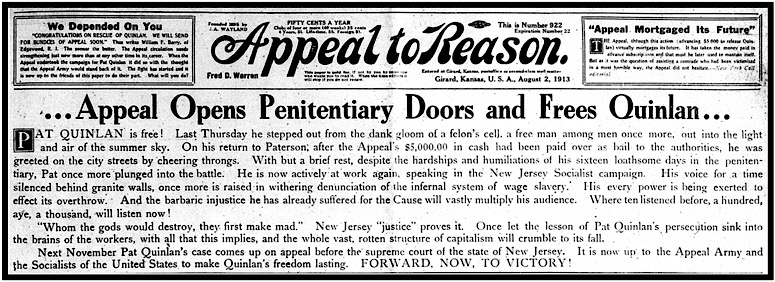 —–
—–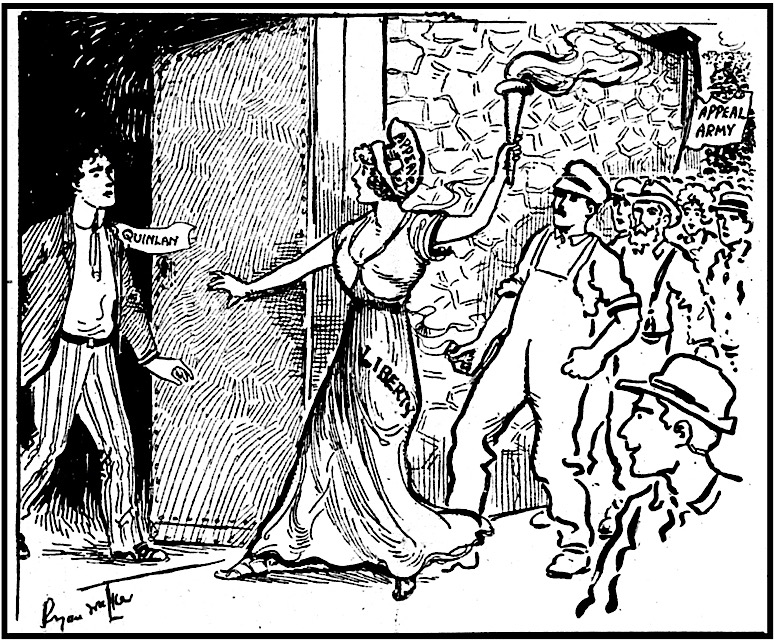 —–
—–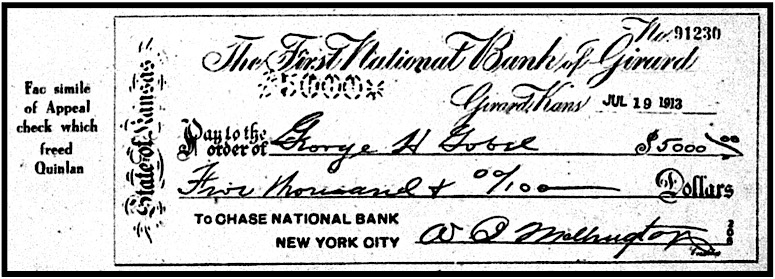
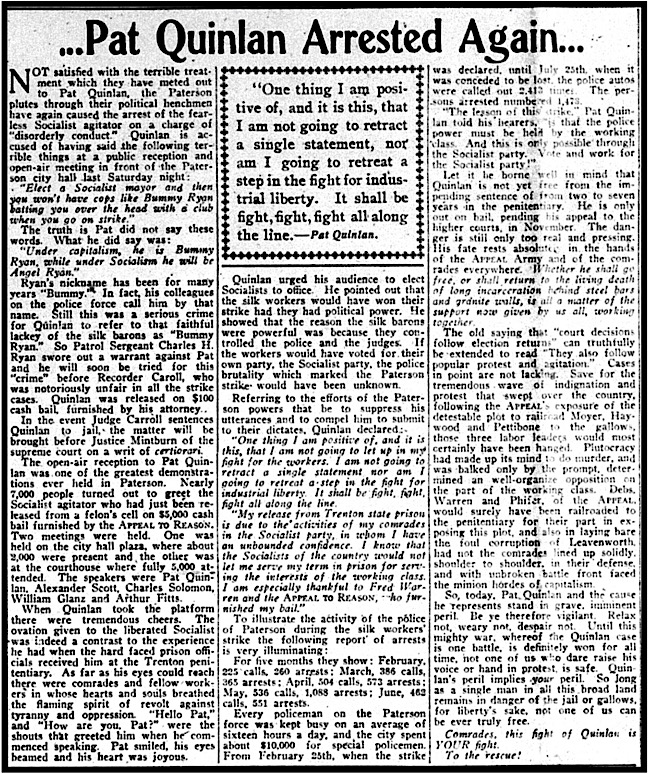
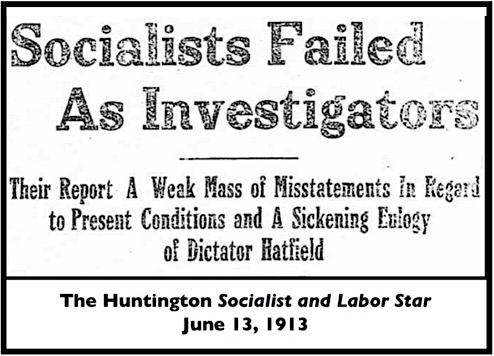 —————
—————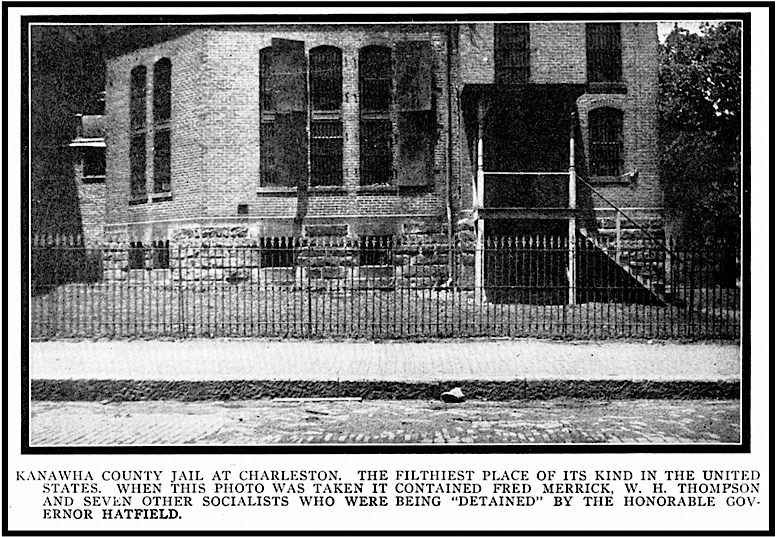


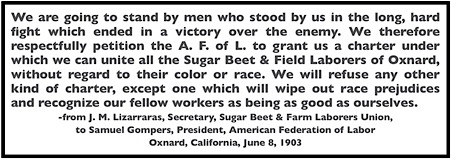 —————-
—————-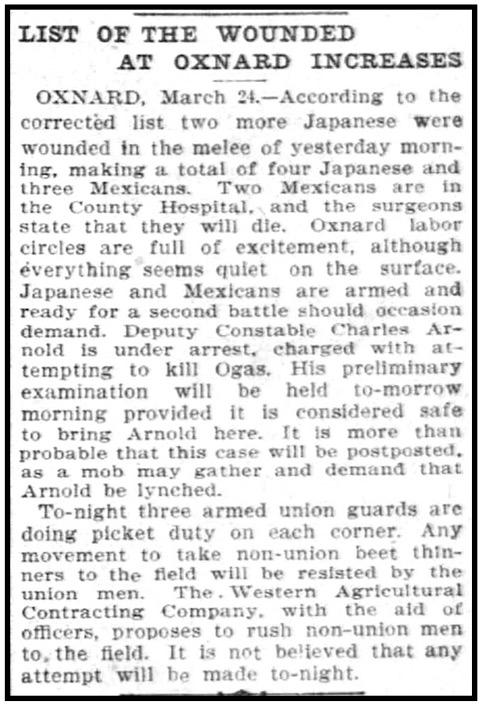
 —————
—————